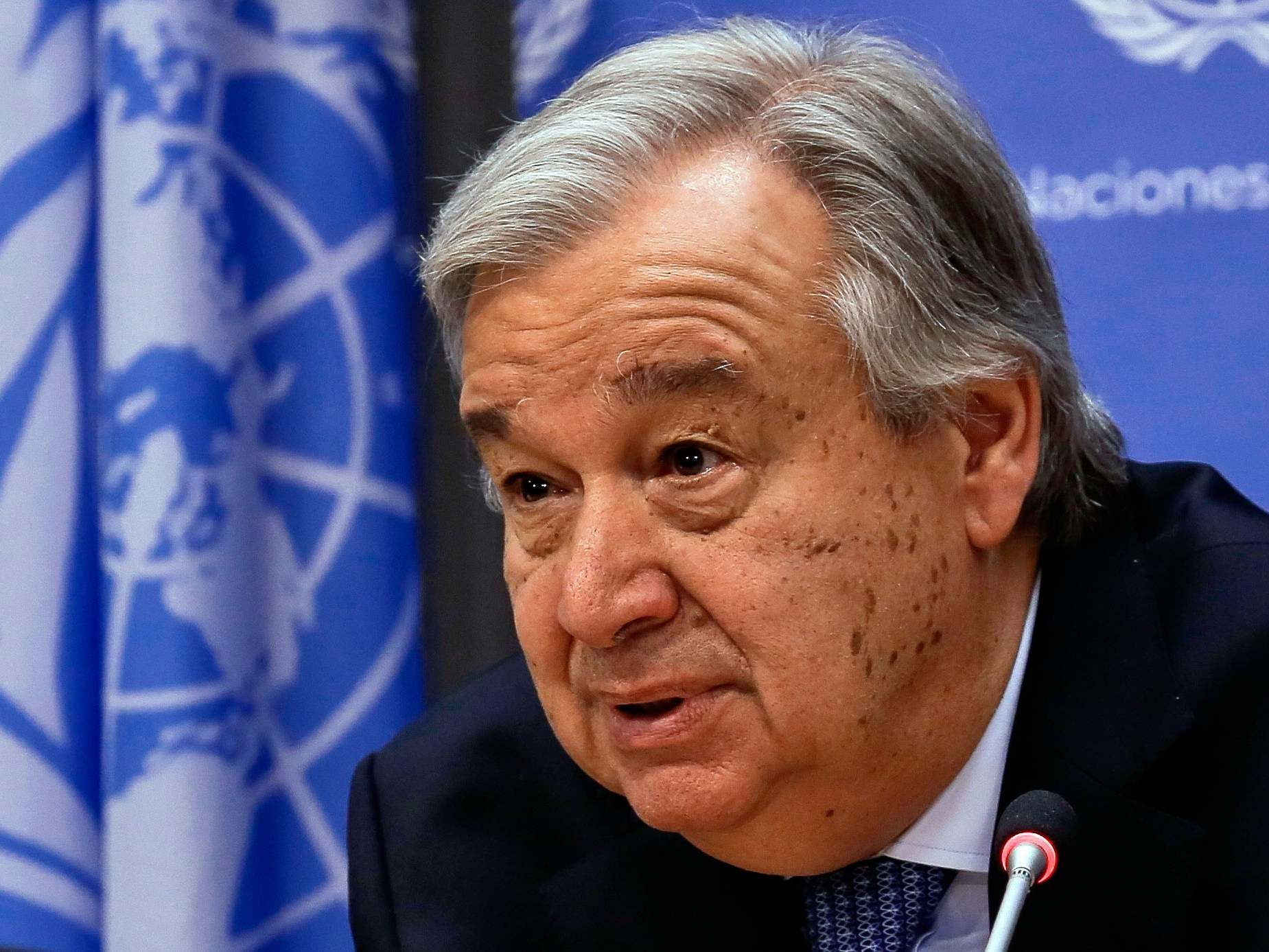UN to run out of money by end of month, secretary general warns
Peace-keeping missions at risk and staff warned to expect default on salaries as member states hold off paying annual fee

Your support helps us to tell the story
From reproductive rights to climate change to Big Tech, The Independent is on the ground when the story is developing. Whether it's investigating the financials of Elon Musk's pro-Trump PAC or producing our latest documentary, 'The A Word', which shines a light on the American women fighting for reproductive rights, we know how important it is to parse out the facts from the messaging.
At such a critical moment in US history, we need reporters on the ground. Your donation allows us to keep sending journalists to speak to both sides of the story.
The Independent is trusted by Americans across the entire political spectrum. And unlike many other quality news outlets, we choose not to lock Americans out of our reporting and analysis with paywalls. We believe quality journalism should be available to everyone, paid for by those who can afford it.
Your support makes all the difference.The United Nations could run out of money by the end of the month as it faces a near-unprecedented funding crisis, the secretary-general has warned.
Almost a third of member states have not paid their annual dues leading to a £1.3 billion black hole, António Guterres said in a statement on Tuesday.
The shortage of cash has meant vital staff vacancies have been left empty, travel limited to all but essential journeys and meetings deferred amid attempts to shore up the dwindling reserves. Staff have been warned there may be a default on salaries in November.
Peace-keeping operations, which are paid for from a closed budget, could eventually be scaled back, Mr Guterres indicated.
“The organisation runs the risk of depleting its liquidity reserves by the end of the month and defaulting on payments to staff and vendors,” he said during the shock warning, adding: "Our work and our reforms are at risk.”
He urged the 64 members who have not coughed up - from a total 193 - to do so “urgently and in full”. The appeal came during a committee meeting of the General Assembly on Tuesday morning.
But making the crisis explicit later in the day, Stéphane Dujarric, Mr Guterres’s spokesperson, told reporters that a “default…could risk disrupting operations globally.”
He added: “The secretary-general further asked governments to address the underlying reasons for the crisis and agree on measures to put the United Nations on a sound financial footing.”
He did not name the countries who had fallen into arrears or offer a reason why so many had failed to pay up.
But he said that, as of the end of September, only 70 per cent of the total memberships bills had been paid.
“To date, we have averted major disruptions to operations”, said the statement, but “these measures are no longer enough. The secretariat could face a default on salaries and payments for goods and services by the end of November unless more member states pay their budget dues in full.”
He added that the UN budget implementation was no longer being driven by planning, but according to “the availability of cash at hand…[which] undermines mandate delivery and goes against our efforts to focus less on inputs and more on results.”
Join our commenting forum
Join thought-provoking conversations, follow other Independent readers and see their replies
Comments